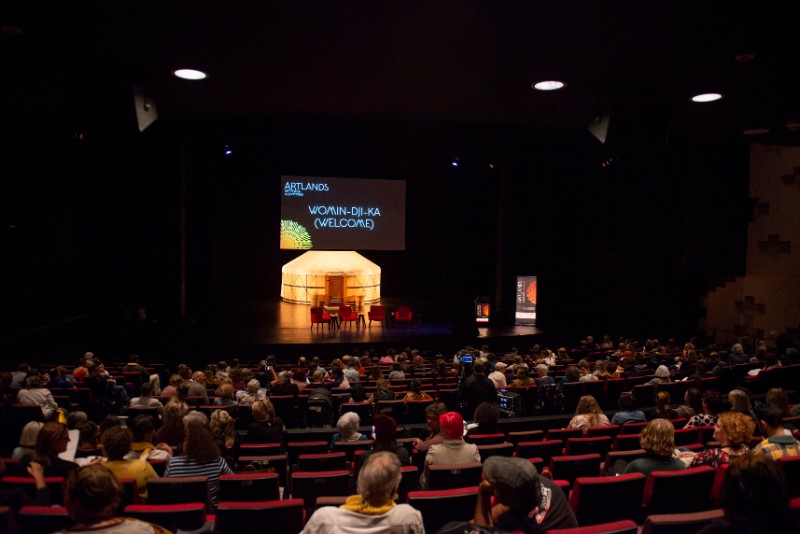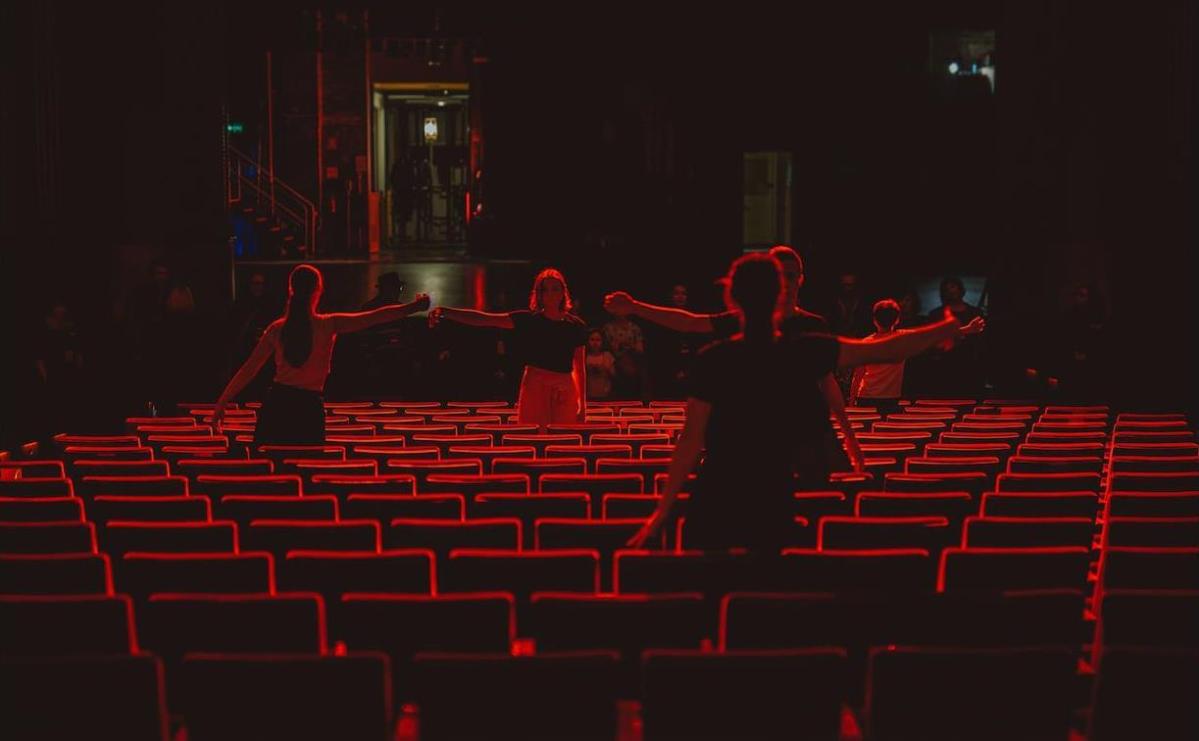A national gathering of regionally based artists and arts workers from across Australia may not be possible during a pandemic, but the closure of state borders can’t put an end to culturally important conversations.
For two decades, the biennial Artlands conference – presented by Regional Arts Australia – has seen arts workers, artists and other practitioners gather to discuss the hot topics of the day. With Artlands 2020 (due to be held in Launceston in September in conjunction with Junction Arts Festival) postponed until next year, Regional Arts Australia has seized the opportunity to host a series of national conversations online instead.
‘We were always planning to try and deliver Artlands in a way that was responsive and which would make the conversation more accessible and more inclusive,’ explained Ros Abercrombie, Executive Director, Regional Arts Australia (RAA).
‘Originally, we had planned to implement this new model in September 2020, after Junction Artlands … but once we decided to reschedule that to September 2021, our remodelling came forward – so now, rather than coming out of Junction, it’s going to lead us into Junction instead.’
The online nature of the Artlands Conversation Series means that unlike a physical conference, the cost of interstate travel will no longer an impendent to participation. It’s a small but significant silver lining to the very dark cloud of COVID-19.
‘There’s a huge amount of uncertainty and a huge amount of pain and suffering at every level of the sector, but there’s also a slight levelling here,’ Abercrombie said. ‘From a regional perspective, we’re now seeing more regional artists and more regional organisations represented across multiple conversations that they haven’t been able to access before. We’re seeing much more inclusion.’
All of the Artlands Conversations – which are supported by the Regional Arts Fund – will be free, captioned and Auslan interpreted; they’ll also be uploaded afterwards to the Regional Arts Australia website to ensure that they can be accessed by as wide an audience as possible.
‘That means they’re not going to be dependent on someone’s ability to be able to take time out of their day – they can come in whenever they want, and hopefully still be able to connect. I think that is a positive,’ Abercrombie said.
LOCAL FOCUS, NATIONAL IMPORTANCE
A curated program responding to emerging trends in regional practice, the Artlands Conversation Series begins in September with a discussion facilitated by consultant Kath Melbourne and featuring Lindy Hume, Kelly Drummond Cawthorn, Caroline Sharpen, and Ruth Langford.
‘That first session on 2 September has a very Tasmanian focus and it’s all Tasmanian women in that conversation … talking about the collective experience of live performance and exploring, when it’s restricted both physically and from an experience point of view, how can we then still navigate engagement? The conversation is coming from a place-based perspective and a First Nations and a festival perspective. I think a first kick-off like that will be a very timely, relevant and exciting conversation.’

Artlands Victoria 2018. Photo: Diana Domonkos
Other conversations in the series will speak to the factors which shape local identity, moving beyond biennial presentation models, and the importance of the arts to community recovery from disaster.
‘We had quite a few EOI around pathways to recovery around bushfire because obviously, our expressions of interest opened after summer bushfire season, and at that point, we were all working really hard around regional recovery from drought, floods and fires,’ Abercrombie said.
With summer now only a few months away, such conversations remain of critical importance.
‘This conversation will very much talk about what resilience means, how creativity intersects with community recovery, and what the different pathways to recovery are, which I think is crucial … I think it’s just so important that we know that recovery isn’t one size fits all, that there’s multiple paths, multiple processes, and multiple ways to navigate recovery. The arts and the creative sector understand that, which is what this conversation will be about.’
‘‘This conversation will very much talk about what resilience means, how creativity intersects with community recovery, and what the different pathways to recovery are.’
Abercrombie envisages the Artlands Conversations Series continuing long after physical gatherings are once again possible on a national scale.
‘We’re trying to find ways to support ongoing conversation; to be able to critique and respond and challenge and have that dialogue and bring those practical case studies into the conversations. And then the next level that we need to start to work through is, how does this intersect with if and when we can meet again, and what do those gatherings look like and how do the conversations come together?’
Many of the conversations in the series have been drawn from the expressions of interest submitted to Regional Arts Australia as part of planning for the 2020 Artlands conference.
‘We ran an EOI process for Artlands Junction and which we opened in mid-March, a week before COVID – which was fun,’ Abercrombie laughed.
She is keen to stress that there are many more conversations still to come.
‘This is just the start of the program. We don’t see this as complete. It’s about opening up – we see ourselves as a connector. And from these conversations we want other artists and other organisations, other practitioners to come to us and say, “This is the conversation we want to have or we need to have,” or “We heard these points made in this conversation, can we take that into a deeper dive?” The intention is very much that this is just a starting point and that we really invite much more exchange to come from this.’
Learn more about the Artlands Conversation Series. The first conversation takes place on Wednesday 2 September at 2:30pm AEST (2pm ACST and 12:30pm AWST).





